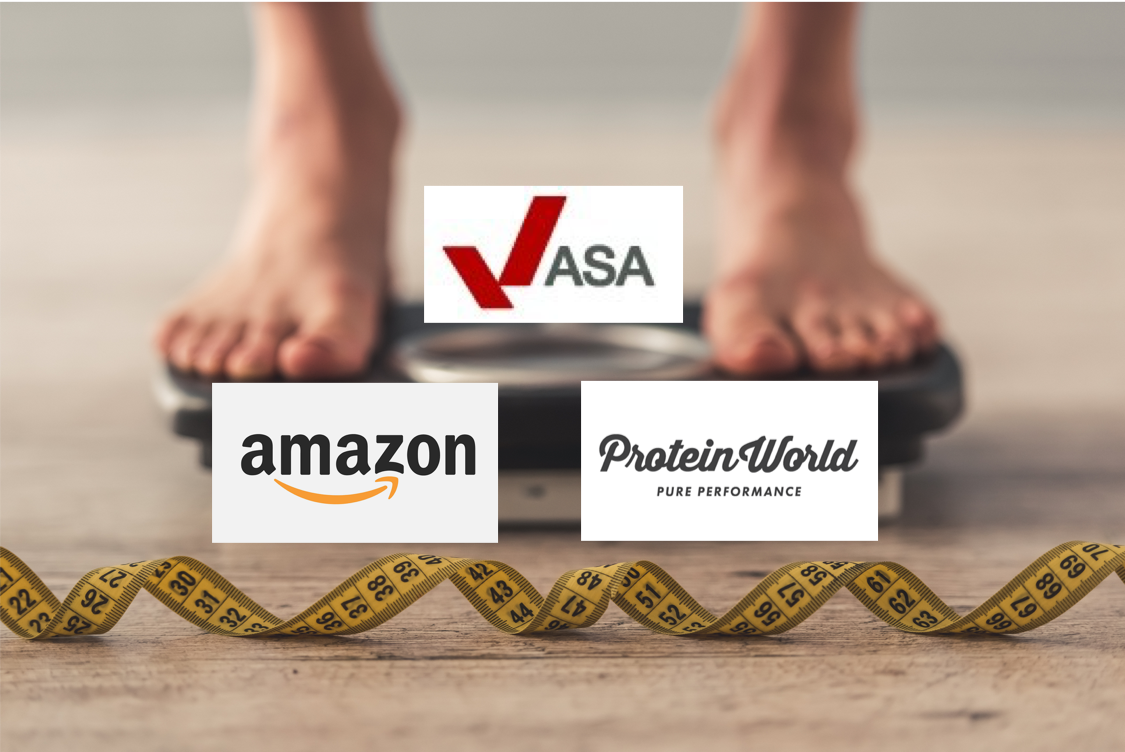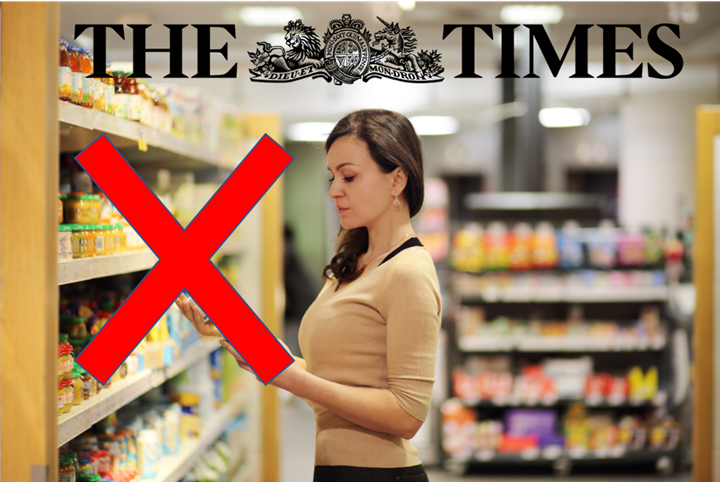Content Sections
The UK’s private advertising industry self-regulator, the Advertising Standards Agency (ASA), has been busy duffing up Amazon Europe and the supplement company Protein World. The core of ASA’s complaint is the use by these companies of category headings on their respective websites relating to ‘slimming’ or ‘weight loss’ when products selling under those categories are not subject to EU-authorised health claims.
What might this mean?
The attack comes not from a government authority or regulator, but rather a private company, the ASA, acting as a self-regulator of the advertising industry, one that contributes a staggering £18 billion or more to the UK economy.
The ASA then takes a piece of very badly formed EU law, the EU Nutrition and Health Claims Regulation (No 1924/2006), and interprets it with the aim of making it ever harder for citizens to find products relevant to their specific interest.
For a piece of EU law that was developed as a policy measure of the EU’s 5-year obesity strategy to deal with obesity and related diseases, the law has failed spectacularly. There are just 3 authorised health claims relating directly to weight loss: one for 3 grams a day of glucomannan (Konjac), and two for products that are legitimate meal replacements (maintenance of body weight after weight loss or reduction of body weight).
Worse than that, there is an EU blackout on 101 ingredients or foods with failed health claims in relation to weight control. These applications were side-lined during the ‘great health claims cull’ that occurred following the tortuous scientific assessment process operated by the European Food Safety Authority (EFSA) between 2008 and 2010. These 101 non-authorised health claims were a subset of the 2,066 health claims that are currently black-marked as “non-authorised health claims”. All of these are illegal for use EU-wide in any commercial communication that might influence a purchasing decision by a consumer. Claims that were related to weight control that now are illegal relate to foods, food groups or ingredients including apple cider vinegar, barley fibre, caffeine, low glycaemic carbohydrates, carnitine, chitosan, chromium, conjugated linoleic acid [CLA], cocoa (Theobroma cacao), guar fibre, dietary fibre, DHA, EPA, epigallocatechin gallate (ECGC) in green tea, gamma linolenic acid (GLA), medium chain triglycerides (MCTs), mineral water, oat grain fibre, potato protein isolate, protein, raspberry extract and wholegrain foods. While there are no authorised health claims that relate to the term ‘slimming’, there are 7 health claims that relate to slimming that are ‘non-authorised’ and therefore also illegal (e.g. for cocoa, CLA, and flavonoids from green tea, apple and onion).
There are a couple of other authorised claims that affect weight or body composition, namely chromium (“contributes to normal macronutrient metabolism and to the maintenance of normal blood glucose levels”) and zinc (“contributes to normal carbohydrate metabolism”).

Who’s misleading who?
A big part both of the EU Nutrition and Health Claims Regulation’s remit – as well as that of the ASA – is stopping false, ambiguous or misleading advertising. Few would argue that advertisers who show flagrant disregard for these principles shouldn’t be stopped. But where do you draw the line?
Signposting that helps consumers to locate products of interest in the very busy world of e-commerce is an important concept in the world of online retail. As people increasingly transition from conventional bricks-and-mortar purchasing to online it’s only becoming more important. Arguing that categories on websites simply help consumers to be better and more rapidly orientated towards products of interest to them was a big part of the case made by the companies in their defence. It was reiterated also by several of the trade associations that were asked for comment by the ASA, two relating to the natural products sector (Council for Responsible Nutrition UK (CRN UK) and the Health Food Manufacturers’ Association (HFMA), one to the sports nutrition sector (European Specialist Sports Nutrition Alliance (ESSNA)), and one to the pharmaceutical sector (Proprietary Association of Great Britain (PAGB)). That didn’t stop the ASA doing its own thing anyway.
Is it really misleading, as the ASA suggests, that protein products that are categorised generically under weight loss will cause someone to lose weight if consumed? Let’s face it, it’s well accepted and demonstrated that people who decide to exercise more (which helps weight loss) benefit from increasing their protein intake (and yes, there are two authorised health claims for protein and the growth and maintenance of muscle mass).
What about those who choose to reduce carbohydrate intake and substitute for more protein (and fat) in their mission to lose weight? Surely, it’s useful for consumers to have all products that might be associated with the wide variety of weight loss approaches listed together under a generic weight loss category?
In our view, the ASA should limit how it interprets the EU Nutrition and Health Claims Regulation to the advertising that relates to individual commercial products, not to generic categories. And, as in the successful case by Alliance for Natural Health USA on qualified health claims for selenium in the USA, the association should need only to be plausible given that conclusiveness is so hard to establish. In this light, categorising protein supplements under the generic banner of weight loss should definitely be regarded as plausible, while it might be acceptable to take a different view on full-sugar chocolate bars or ice cream.
Shouldn’t we therefore argue that it’s misleading on the part of ASA to attempt to block the ability of online retailers to categorise products that can plausibly be used for weight loss and slimming? Shouldn’t this be especially the case when there are only 3 authorised health claims for weight loss and we’re in the midst of a global obesity epidemic?
ASA – rotten to the core
Practitioner and ANH friend, Alyssa Burns-Hill PhD has been at the centre of an attack by the ASA. She put together a video called ASA – Alyssa Spills All, including an interview with our executive director, Rob Verkerk PhD, that in 16 minutes explains just some of the immense problems linked to the lack of independence and transparency within the ASA.
For more information on Dr Alyssa Burns-Hill, visit: http://alyssaburns-hill.com
Apart from being so overtly non-transparent in its adjudication process, the ASA likes to keep the big-payers in the advertising game (Big Pharma and Big Food) happy. It has ruled over and over again in ways that oppose commercial freedom of expression. Unfortunately, in the UK or the EU, there is no First Amendment. In fact, the EU hasn’t even been able to agree its Constitutional Treaty.
If Theresa May gets her way with Brexit, the continued impact of EU laws on goods will make not a jot of difference.
The only difference is that the majority of government authorities and advertising regulators in Europe don’t take EU laws as literally as the ASA.
What now? Stand up against the ASA
It’s early days. But our view is that the natural products sector needs to stick to its guns and carry on with its generic signposting approach. Bending over to appease the ASA is part of a very slippery slope that will make it harder and harder for consumers to find the products they need in any reasonable time. The hundreds of other online retailers who are doing the same thing as Amazon and Protein World shouldn’t knee-jerk in the wake of this ruling. The ASA is not a government authority. It is a private company that pretends to act in the manner of a government regulator. It may impose sanctions that include negative publicity, encouraging Google to block Google ads and pushing its negative rulings to the top of Internet searches that include the company's name.
But unless companies stand shoulder to shoulder with citizens, the ASA will continue to limit commercial freedom of expression that will make it ever harder for citizens to discriminate between healthy and junk foods.







Comments
your voice counts
04 October 2018 at 8:21 am
Good morning Rob,
Thank you for continuing to highlight the ongoing issues with the Advertising Standards Authority. It's unfortunate that it is also such a political hot potato! No one in government wants to touch it despite my bringing it in front of the government in May 2016. If you'd like to see what happened since that video click below and read my digital magazine, which provides an update and details of how others in the health world have been subject to attack. It's all a great injustice that has been allowed to continue and I believe is infringing our human and civil rights to be able to make informed decisions about our health from a more inclusive pool of knowledge.
You can view the online magazine here: https://joom.ag/6KZL
or view through googling: The Magazine Alyssa Spills All - it's on the digital platform - joomag.
It was also only a year ago when the ASA attacked menopause - calling it a serious medical condition - if you remember, Rob. It caused quite a debate that made ASA change its definition a number of times trying to backtrack. As it stands now it's just a woolly nonsense, in my view.
The ASA is supposed to be a reactive, not proactive, body, but it continues to widen its own remit and scope without proper oversight (there is none) or expert opinion to guide their superficial 'understandings'.
04 October 2018 at 1:59 pm
Thanks for your comments Alyssa, which I've passed to Rob. We hope you're keeping well.
Warm Regards
Melissaa
04 October 2018 at 11:00 am
Since it was the EU's Jean Claude 'Drunker' who cut the sweetheart tax deal for Amazon and the UK media who made them out to be tax dodgers you are unlikely to get the public on on side defending Amazon against the ASA. Amazon doesn't even make profits to pay taxes. Boots the Chemist on the other hand used to pay hundreds of million in tax on its huge profits from the NHS but now it has taken its tax base offshore. Where is the ASA/media attacks on Boots?
I get an email nearly every day from Amazon announcing yet another nutritional product pulled because of an ingredient or too much as in the case of Vitamin D3 5000iu.
It needs a Press Release and Robert to do the rounds of the media interviews to expose the ASA and the rest of the Medical Mafia's campaign.
Good Luck
04 October 2018 at 2:00 pm
Thanks for your comments Robert, which I've passed to Rob.
Warm Regards
Melissa
05 October 2018 at 12:59 pm
Thanks for the article. I much admire what Alyssa is doing to get changes to the status of the ASA and more transparency and less scientism are needed. However I think there is a case to be made that there is an implied claim in the category name 'weight loss' but hardly a deception. However I think the problem can be easily solved by substituting category names such as 'weight management' or 'weight balance'.
08 October 2018 at 5:11 pm
We're supplements manufacturer. Our local Trading Standards Office went miles further than ASA - we had to remove from our website all categories which implied any health effect, including "eye health", "joint support" and "antioxidants"... Our Herbal & Botanical category now looks like: Cannabinoids, Curcuminoids, Carotenoids, Glucosinolates, Glycosides etc. Luckily we could keep Adaptogens!
Your voice counts
We welcome your comments and are very interested in your point of view, but we ask that you keep them relevant to the article, that they be civil and without commercial links. All comments are moderated prior to being published. We reserve the right to edit or not publish comments that we consider abusive or offensive.
There is extra content here from a third party provider. You will be unable to see this content unless you agree to allow Content Cookies. Cookie Preferences